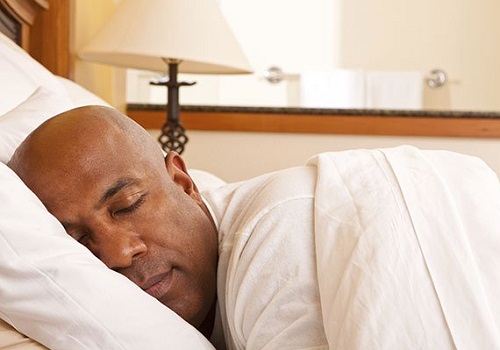
Excessive and insufficient sleep are similarly detrimental to your brain's functioning, a new study has found.
From late night phone binges to stress-induced insomnia and
restless newborns, many of us aren’t getting the right amount of sleep.
We all know we need it and we’re constantly being told that not
getting enough can have serious knock-on effects to our physical and
mental health.
Now though, new research is suggesting that getting too much shut-eye could in fact be just as damaging.
In what is being dubbed the world’s largest sleep study, a team of
neuroscientists from Western University’s Brain and Mind Institute
enlisted the help of more than 40,000 people from around the world to
take part in an online scientific investigation made up of in-depth
questionnaires and a series of cognitive performance activities.
“We really wanted to capture the sleeping habits of people
around the entire globe. Obviously, there have been many smaller sleep
studies of people in laboratories but we wanted to find out what sleep
is like in the real world,” says Adrian Owen, Western's researcher in cognitive neuroscience and imaging.
The participants provided extensive information about their lives
which may have contributed to some of the results, including which
medications they were on, how old they were, where they lives and what
kind of education they had received.
Approximately half of all participants reported sleeping less than
6.3 hours per night on average, about an hour less than the study's
recommended amount.
Throughout the study, the team made a number of surprising
revelations including that most participants who slept four hours or
less performed as if they were almost nine years older.
Additionally, they also found that the amount of sleep associated
with highly functional cognitive behaviour was the same for everyone –
seven to eight hours – and that anyone who slept more or less than this
performed worse cognitively regardless of their age.
The two actions which were most strongly affected by sleep were
reasoning and verbal abilities, while short-term memory performance was
relatively unaffected.
“We found that the optimum amount of sleep to keep your brain
performing its best is 7 to 8 hours every night and that corresponds to
what the doctors will tell you need to keep your body in tip-top shape,
as well,” says Conor Wild, lab research associate and the study's lead author.
“We also found that people that slept more than that amount were equally impaired as those who slept too little.”
The findings are supported by a previous study presented at the
European Society of Cardiology Congress in Munich earlier this year.
Using data from more than one million adults, scientists found that
both sleep deprivation and excessive hours in bed should be avoided for
optimum heart health.
Instead, they suggested that six to eight hours sleep a night is the most beneficial for the heart.
************
Source: The Independent UK


No comments:
Post a Comment